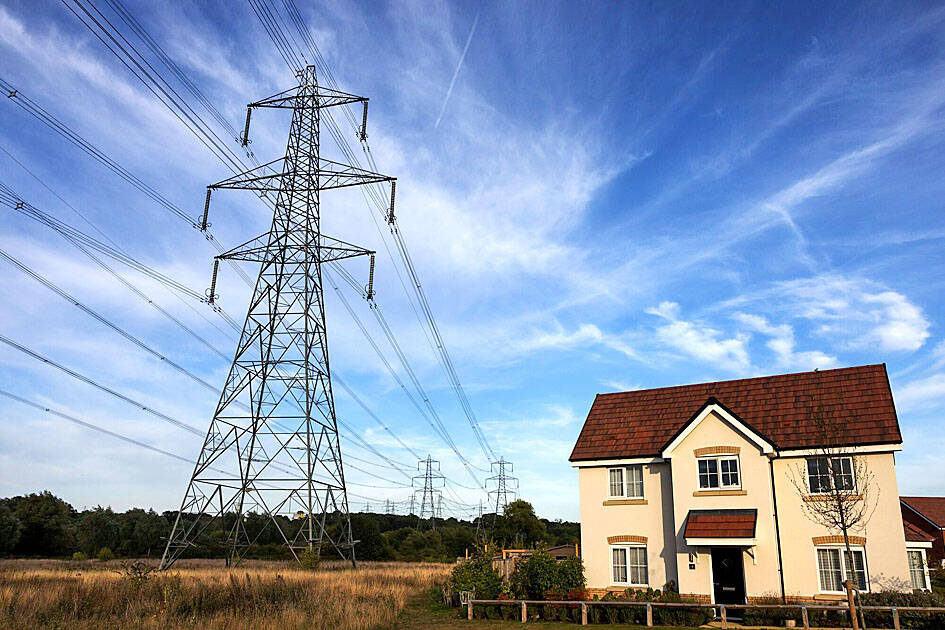Microsoft Corp and OpenAI are among the US firms that have in the past few days pledged to invest £31 billion (US$41.8 billion) into artificial intelligence (AI) projects in the UK, but industry experts say the commitment could be undermined by the state’s aging power grid and some of the world’s highest electricity prices.
British Prime Minister Keir Starmer has promised to fast-track planning approval for data centers and ease access to the power grid, but AI is notoriously energy-hungry and companies could look elsewhere if the government cannot meet its commitments.
“The UK is simply unfit for datacenter development, with some of the world’s highest electricity prices, an ill-suited planning system and a systemic failure of governance,” XTX Markets Ltd chief technology officer Joshua Leahy said.
Photo: Bloomberg
Earlier this year, XTX Markets, the quant trading firm backed by billionaire Alex Gerko, announced it would spend more than £1 billion building five data centers in Finland, where power is cheaper, to underpin its growing use of machine learning.
The US-UK initiative is a spin off from US President Donald Trump’s visit to the UK last week.
Getting these plans off the page and onto the ground is going to be tough. New infrastructure in the UK from hospitals to manufacturing is already facing challenges from an aging, strained grid. As things stand, it can take at least five years to get a new connection, according to real-estate firm Savills PLC, which works with developers to identify which sites are suitable for data centers.
The UK is making progress toward its 2030 goal, getting a record 50 percent of its electricity supply from renewables last year, government data showed.
Even with renewable power being added at a record pace, demand from data centers could grow 40 percent by 2030, which would quickly soak up the extra supplies, analysis firm ICIS said.
The UK has high electricity costs because of the role gas-fired power plants play in setting prices. The most expensive megawatt needed to meet demand sets the price for everyone in the market. That means that even if the wind is blowing and the sun shining, a small amount of expensive gas on the grid can drive up the cost. In other parts of Europe, such as France, cheaper sources like nuclear energy keeps prices lower.
Countries such as France where power prices are cheaper are more attractive than the UK and that would start to take effect by 2030, ICIS said.
“The price differential is currently the main distinction between the French and UK markets in terms of data-center attractiveness,” ICIS analyst Luca Urbanucci said. “High UK electricity costs are likely to remain a structural drag, as data-center developers increasingly gravitate toward regions with lower power prices and abundant renewable resources.”


